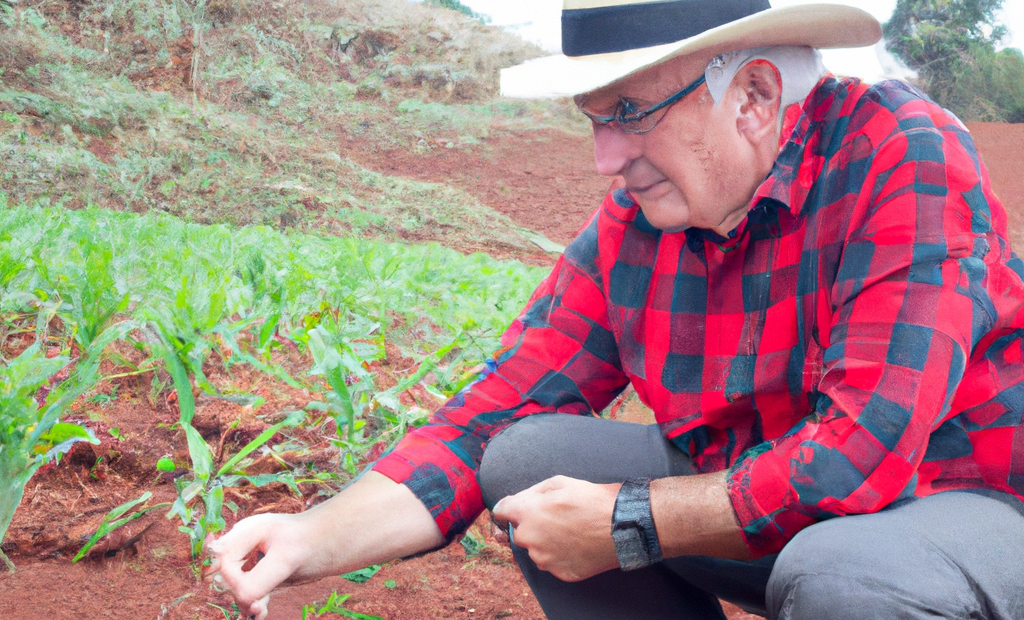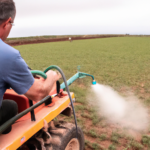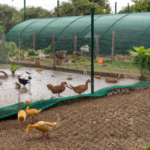The sections discuss the vital role of fertilizers and biofertilizers in early detection of plant diseases. These agricultural products, essential in organic farming, strengthen the immune system of plants and improve soil health, allowing for early detection of diseases. The use of biofertilizers offers a healthier, more sustainable and effective approach to managing and preventing plant diseases.
Agriculture, as the backbone of our society, requires close and constant monitoring to ensure its health and productivity. An essential part of this monitoring is the early identification of plant diseases, as this allows for preventive and corrective measures to be taken before the problem spreads or intensifies. This article dives into the various techniques used for this crucial early detection process, focusing on the use of fertilizers, agricultural products, and biofertilizers. Through these sections, we will explore how these elements, properly integrated into organic farming systems, can be powerful tools in the fight against plant diseases. From the use of fertilizers and biofertilizers to the incorporation of organic farming techniques, each section of the article will provide useful and practical knowledge to help farmers and gardeners keep their plants healthy and productive.
- 1. "Use of Fertilizers and Biofertilizers for Early Detection of Plant Diseases"
- 2. "Organic Farming and its Role in Early Identification of Plant Diseases"
- 3. "How Agricultural Products Can Help in Early Detection of Plant Diseases"
- 4. "Incorporating Biofertilizers into the Early Identification Process of Plant Diseases"
1. "Use of Fertilizers and Biofertilizers for Early Detection of Plant Diseases"
The use of fertilizers and biofertilizers can play a crucial role in the early detection of plant diseases. Fertilizers, being an integral part of organic farming, can provide essential nutrients to plants that strengthen their immune system and increase their resistance to diseases. On the other hand, biofertilizers, which are agricultural products rich in beneficial microorganisms, can improve soil health and nutrient availability to plants, making them less susceptible to diseases. When used correctly, these products can help farmers detect early signs of plant diseases such as yellowing of leaves or slow growth. Thus, the use of fertilizers and biofertilizers can be an effective strategy for the early diagnosis of plant diseases.
2. "Organic Farming and its Role in Early Identification of Plant Diseases"
Organic farming plays an essential role in the early identification of plant diseases. This approach to farming favors the use of biofertilizers and agricultural products free of toxic chemicals that can mask or even exacerbate disease symptoms in plants. By avoiding the use of chemical fertilizers, organic farming allows for a more natural environment that facilitates the early detection of disease signs. Biofertilizers, which are an integral part of organic farming, not only nourish plants but also improve soil structure and its ability to retain water, which in turn helps plants resist disease. Additionally, many organic farming products include beneficial microorganisms that can help prevent plant diseases by competing with harmful pathogens. In short, organic farming provides a healthier and more sustainable approach to the early identification of plant diseases.
3. "How Agricultural Products Can Help in Early Detection of Plant Diseases"
Agricultural products play an essential role in the early detection of plant diseases. Fertilizers, both conventional and biofertilizers, are an integral part of this process. By providing plants with the nutrients necessary for their growth and development, fertilizers help strengthen the immune system of plants, allowing them to better resist diseases. In addition, some fertilizers and biofertilizers contain beneficial microorganisms that can help prevent the spread of harmful pathogens. In the context of organic farming, the use of these agricultural products can be an early indicator of the presence of diseases. For example, changes in plant growth or color after the application of these products can be signs of a possible disease. Therefore, these products not only help prevent diseases, but can also be valuable tools for their early detection.
4. "Incorporating Biofertilizers into the Early Identification Process of Plant Diseases"
Incorporating biofertilizers into the process of early identification of plant diseases can prove to be an effective strategy. Biofertilizers, an eco-friendly alternative to traditional synthetic fertilizers, benefit the overall health of plants and can help prevent the onset of diseases. In the context of organic farming, the use of agricultural products such as biofertilizers can improve plant resistance to diseases, allowing for early detection of any abnormalities. This is because biofertilizers improve soil quality and plant nutrition, strengthening their immune system and making them less susceptible to diseases. Therefore, integrating biofertilizers into plant disease management practices can be an effective strategy for early identification of diseases.
The use of fertilizers and biofertilizers, as well as the adoption of organic farming practices, are essential techniques for early identification of plant diseases. These tools not only help to strengthen plant health, but can also indicate subtle changes that may be signs of disease. Agricultural products are another valuable resource for early detection of potential plant health problems. It is crucial to integrate these methods and products into a holistic approach to plant health. Incorporating biofertilizers into this process can further improve the effectiveness of early disease identification. In short, a proactive and ecological approach to plant health can lead to early detection of diseases, allowing for timely and effective interventions to maintain the vitality and productivity of our crops.


